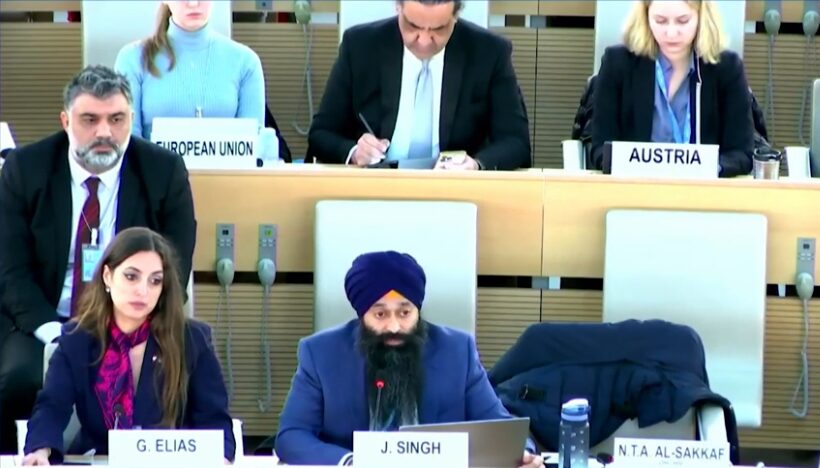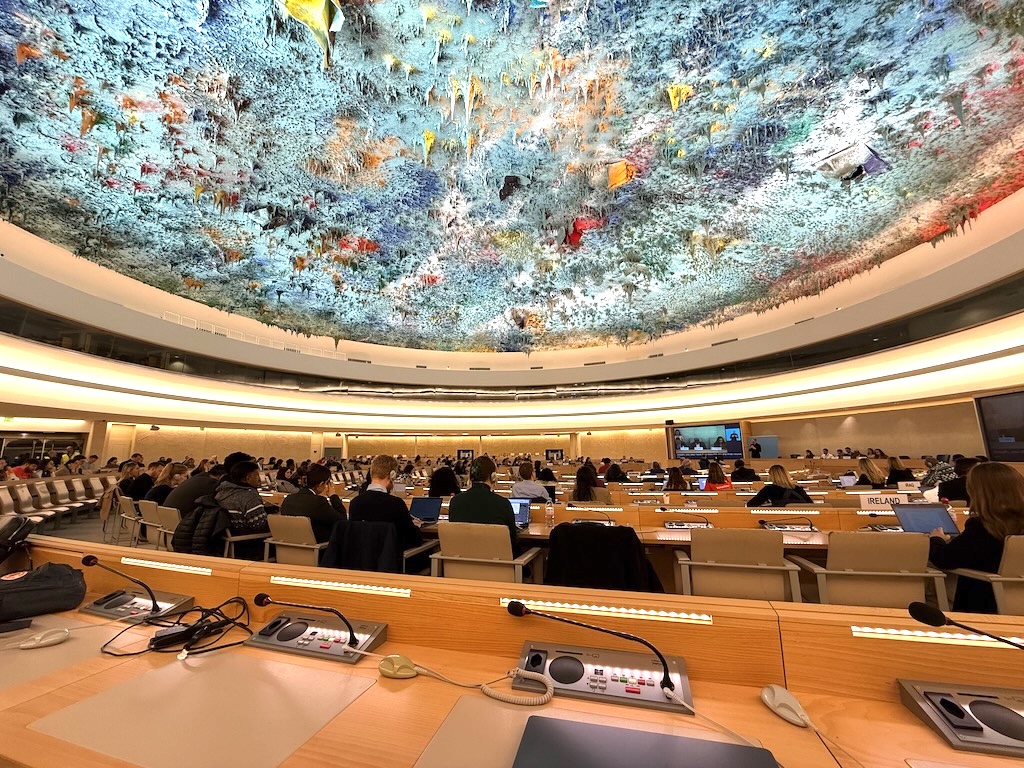Jaspreet K. Singh, Co-Founder & Advocacy Strategist, ICAAD
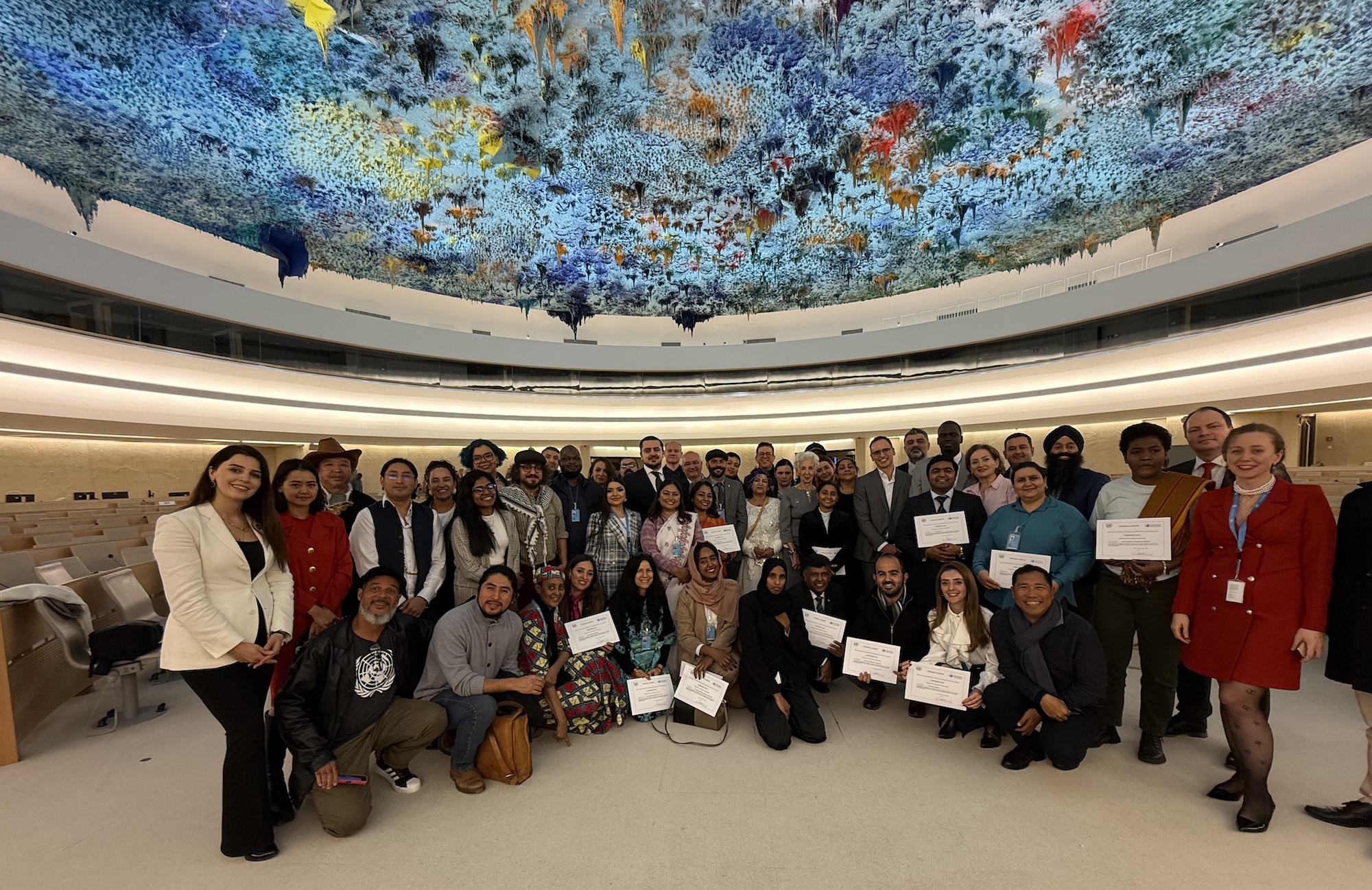
2024 UN Human Rights Minority Fellows Along with International Contest for Minority Artists Awardees and Members of OHCHR Staff
After spending the month of November immersed in the United Nations Office of the High Commissioner for Human Rights (OHCHR) Minority Fellowship Program, I’ve just returned home reenergized – with sharpened skills and a deeper appreciation for the value of engaging with international human rights mechanisms. Something that I didn’t expect given the human rights challenges, and the failure of mechanisms in stopping many of the atrocities that continue to unfold today.
Although I’ve spent 15 years working as an international human rights lawyer—filing reports to Treaty Bodies and the UPR, assisting NGOs through these processes, and teaching clinical law students how to navigate international reporting systems—this fellowship offered a level of direct engagement with OHCHR desk officers, Special Rapporteurs, and other experts that I hadn’t experienced before. Even with my background, I found it invaluable to hear firsthand how these experts think about minority rights issues, what challenges they face, and what calculations they make to strategically leverage UN mechanisms.
The program brought together 29 fellows from 26 countries, each representing ethnic, linguistic, or religious minority communities. This diversity was the bedrock of our month-long engagement. From the start, the fellowship was not just about absorbing information; it was about exchanging ideas, experiences, and strategies. On my LinkedIn at the outset, I wrote about how honored I was to join such a group. Now, in hindsight, that sense of honor has deepened into gratitude and admiration.

English Language Cohort of the UN Human Rights Minority Fellowship along with Senior Fellows
Our journey began in Geneva, the hub of the UN’s human rights machinery, where we dissected the architecture of the UN system, exploring how to effectively use the Human Rights Council, treaty bodies, and the UPR process to secure minority rights protections. As someone who has guided NGOs and engaged heavily with treaty bodies before, it was enlightening to see these mechanisms through the eyes of the very people who staff them day-to-day.
We also engaged in skill-building sessions covering effective advocacy, lobbying, and media campaigning. We learned the nuances of drafting communications to Special Procedures, preparing parallel reports to Treaty Bodies, and making oral statements during the Forum on Minority Issues. Such practical exercises bridged the gap between theory and action, confirming that effective advocacy requires legal acumen and data/evidence, but also strategic communications, diplomacy, and an appreciation for cultural and political context.
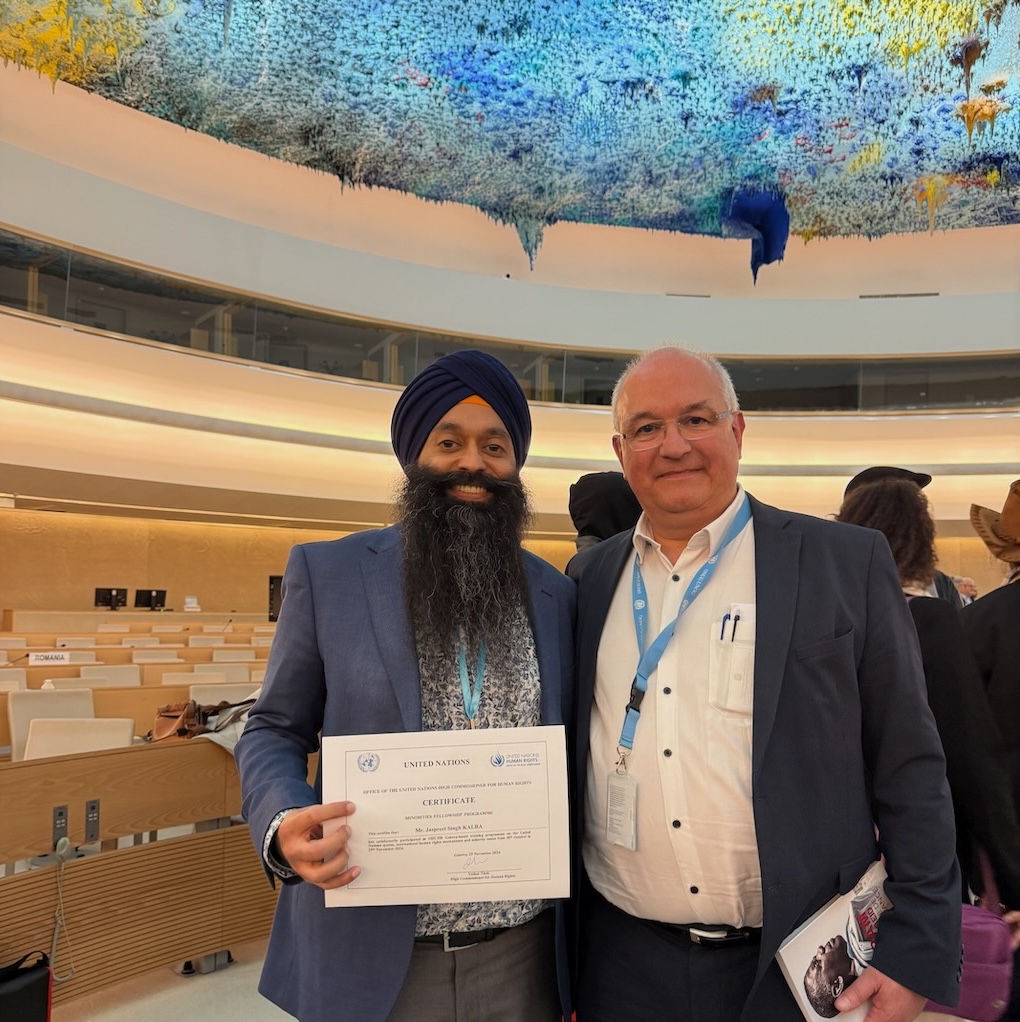
Jaspreet K. Singh, ICAAD Co-Founder & OHCHR Minority Fellow with UN Special Rapporteur on minority issues Prof. Nicolas Levrat
There were also meaningful opportunities for informal discussions with desk officers at the OHCHR and staff from leading NGOs like Amnesty International and Human Rights Watch. These interactions provided candid insights into how to best approach both ally institutions and more resistant governments. It further demonstrated that advocacy is as much about relationships and trust-building as it is about formal written submissions and public statements.
A further highlight of the program was our week in Strasbourg, where we immersed ourselves in the Council of Europe’s human rights system. It’s one thing to know that regional bodies can wield significant influence; it’s another to witness it firsthand. While we’ve previously engaged in strategic litigation at the European Court of Human Rights, this visit widened my understanding of the system as a whole and how the NGOs we work with in Europe can better leverage it for their advocacy. The study visit and presentations by various Council of Europe entities also emphasized the importance of pushing for the development of similar regional structures in other parts of the world.
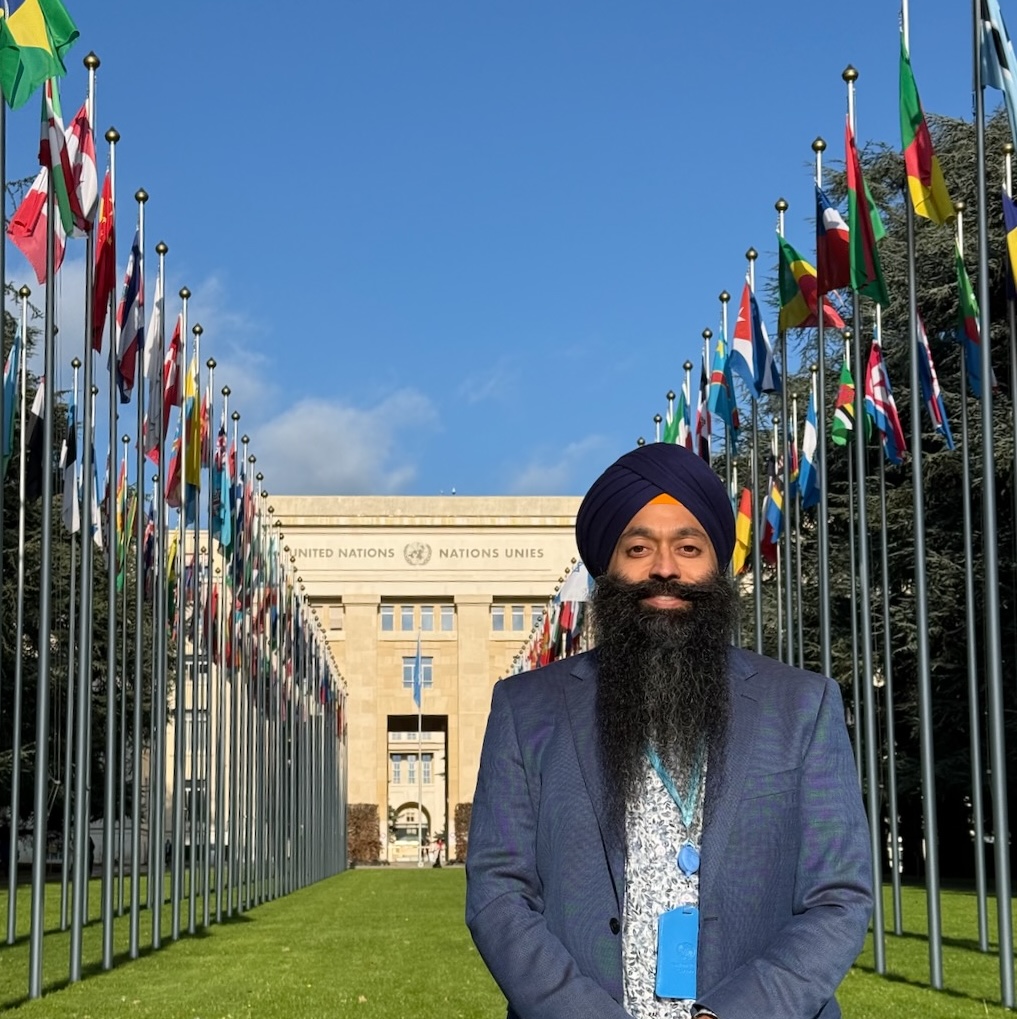
The culmination of the fellowship program coincided with the UN Forum on Minority Issues. Here, fellows delivered oral statements, participated in side-events, and lobbied countries to address their human rights concerns. Seeing peers from different corners of the world articulate their community’s struggles and hopes for the future reinforced the power of collective resilience in my mind. It echoed the fellowship’s core premise: we are part of a global community united by the conviction that human rights are the foundation for peaceful, equitable societies.
Leaving Geneva, I carry with me a deeper understanding of regional and international mechanisms, but also an enduring sense of global solidarity. The Minority Fellowship Program reaffirmed that while the framework of international human rights may be universal, it’s shaped and enriched by diverse local contexts and personal narratives. This experience reaffirmed to me that, despite its complex machinery and obstacles, the UN system can be a powerful tool for change and with the right skills, dedicated advocates can make these levers move.

